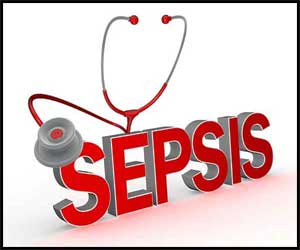- Home
- Editorial
- News
- Practice Guidelines
- Anesthesiology Guidelines
- Cancer Guidelines
- Cardiac Sciences Guidelines
- Critical Care Guidelines
- Dentistry Guidelines
- Dermatology Guidelines
- Diabetes and Endo Guidelines
- Diagnostics Guidelines
- ENT Guidelines
- Featured Practice Guidelines
- Gastroenterology Guidelines
- Geriatrics Guidelines
- Medicine Guidelines
- Nephrology Guidelines
- Neurosciences Guidelines
- Obs and Gynae Guidelines
- Ophthalmology Guidelines
- Orthopaedics Guidelines
- Paediatrics Guidelines
- Psychiatry Guidelines
- Pulmonology Guidelines
- Radiology Guidelines
- Surgery Guidelines
- Urology Guidelines
Gut microbiota linked to organ damage in patients with sepsis

Sepsis is a serious condition that can result in organ failure and even death. A novel human study published in The FASEB Journal demonstrates for the first time that the gut microbiota of patients with sepsis plays a major role in organ damage.
Sepsis is a potentially life-threatening condition caused by the body's response to an infection. The body normally releases chemicals into the bloodstream to fight infection. Sepsis occurs when the body's response to these chemicals is out of balance, triggering changes that can damage multiple organ systems.
To conduct the experiment, researchers first compared the fecal microbial composition of two human groups: people who had sepsis and those who did not. They observed that the gut microbiota was altered at both functional and compositional levels in the first group, compared with that of the second group.
The researchers then transplanted the feces to recipient mice, induced sepsis in the mice, and checked the mice’s organ injuries. The mice transplanted with feces from the first group showed more severe liver damage than the mice transplanted with feces from the second group, even though all the mice had been induced with sepsis. These initial findings suggest that targeting intestinal microbiota may help people recover from sepsis.
“Keeping healthy microbiota in your gut is important to maintaining normal immune status and combatting diseases like sepsis,” said Peng Chen, PhD, a professor in the department of pathophysiology at Southern Medical University in Guangzhou, China. “With further study, transplantation of healthy feces may one day serve as a novel approach for treating sepsis in intensive care units.”
“The microbiome is one of the most penetrating fields in the modern era of human homeostasis and pathology, and this study is yet one more exciting new dimension,” said Thoru Pederson, PhD, Editor-in-Chief of The FASEB Journal.

Disclaimer: This site is primarily intended for healthcare professionals. Any content/information on this website does not replace the advice of medical and/or health professionals and should not be construed as medical/diagnostic advice/endorsement or prescription. Use of this site is subject to our terms of use, privacy policy, advertisement policy. © 2020 Minerva Medical Treatment Pvt Ltd